She Went All the Way Read online
Page 5
No one, he’d noticed, had called Jack Townsend’s indie Hamlet masturbatory or cloying, that he’d noticed. Sure, the thing hadn’t done a fraction of the business Hindenburg had, but it had received glowing reviews—even one from the New York Times.
Somehow, Tim didn’t imagine Copkiller IV was going to pull in glowing reviews from anybody.
“Now, Mel,” Tim said, in what he hoped was a soothing voice. “You know Jack. He gets testy right before an important shot….”
“It has nothing to do with the film!” Melanie all but shrieked. Her voice did not carry far, however, with all the snow. Tim doubted the crew, setting up in front of the mouth to the abandoned mine, could hear her. Thank God.
“That is what is wrong with you people,” Melanie shrieked. “You think everything revolves around your stupid film! Well, this has nothing to do with Copkiller, Tim. It has to do with the fact that Jack Townsend is a selfish, manipulative di—”
Over by the mine shaft, a siren went off. The special effects crew had rigged the detonators, and were preparing to do a test run of the explosion. They needed everyone to move back twenty feet to avoid flying shards of wood and gravel.
“—and I am not going to be used anymore,” Melanie, who’d kept talking right through the warning siren, continued when it was shut down. “This is it, Tim. I will not work with him. Not a second longer. Understand?”
A distant rumble indicated that the explosion had gone off without a hitch. Now the crew would be scrambling to rig up the explosives for the actual shoot. In a very short while, they’d be ready for the principals.
“Mel,” Tim said soothingly. “I understand you’re going through a hard time right now. We’re all stressed. You know it always gets like this in the final days of a shoot. But I’m asking you to understand that Jack’s going through an even harder time than the rest of us. I mean, Greta—”
He knew immediately he should not have brought up La Woolston. The part of Mimi, the heroine of Hindenburg, had been the most sought-after role in Hollywood two years ago, and Melanie—along with three dozen other starlets, not to mention several rock divas and one television talk show hostess—had been bitterly disappointed when it had gone to Greta, and not to her.
“Oh, God!” Melanie cried, her face crumpling. “How could you, Tim? How could you?”
The trailer door slammed shut again. Tim, the PA, and Paul all exchanged glances.
“Maybe,” the PA ventured, after a moment, “I should phone her therapist.”
“Maybe,” Tim said, curtly, “you should have done that a half-hour ago.”
While the PA went slinking shame-facedly away, the assistant director cleared his throat. Tim threw him an aggrieved look. “What now?” he wanted to know.
“Um,” the assistant director said, lifting a hand to the headset attached to one of his bright red ears. “It’s just that I got confirmation that Lou’s with him. Townsend, I mean.”
Tim stared at the other man in horror. “What…what are you saying?”
“Um,” Paul said nervously. “She took the same chopper. Lou. And Jack. In the same small, enclosed space.”
Tim reached up to clutch his head. No. No, this could not be happening.
“My God,” Paul breathed. “They’ll kill each other.”
Vicky Lord slammed the door to her hotel suite and leaned back against it, heavily. Or as heavily as a woman who kept as eagle an eye as she did on her hundred pound, fifteen percent body fat, small-boned frame as Vicky did—could lean.
“My God,” she said, to Lupe, who looked up at her employer with surprise from the magazine she’d been perusing in front of “The View. ” “Those reporters are relentless. I can’t believe I made it through that lobby in one piece. ‘Mrs. Lord! Mrs. Lord! Do you have any comment, Mrs. Lord, on the Di Blase/Woolston elopement? Do you know how Jack Townsend’s doing this morning? Is he suicidal?’ And those environmentalists! You’d think Tim was threatening to blow up a kitten farm, instead of an old abandoned mine shaft, the way they’re carrying on. ”Eyeing the bottle of whiskey set out on top of the hotel suite bar, Vicky hurried over to it and poured herself a glass. “Just a quick one,” she said, to Lupe, who’d hidden the magazine and switched off the TV.“I need it, after all that.”
Lupe, as was her custom, said nothing, but got up and retrieved the fur coat her mistress had dropped onto the floor. Designed to look like imitation mink, the coat was in fact genuine chinchilla, but would have fooled even the most ardent paint-carrying animal activist.
“Why are you home so early, Mrs. Lord?” Lupe asked, as she went to the closet and carefully hung the coat up. “Is it the storm? I heard about it on the news.”
“Storm?” With the whiskey sitting nicely at the bottom of her stomach with the egg white omelette and hot water and lemon she’d had for breakfast, Vicky went to the vast bank of windows on the far side of the suite’s living room and looked out at the thick wall of clouds barreling down from the mountains. “Good Lord. Now that is a storm. Well, isn’t that just perfect? Now I’ll be stuck in here all day with little Lord Fauntleroy, and not even a chance of a reprieve for shopping. As if,” she added with a sigh, “there were anything to buy in this godforsaken place anyway.”
She turned away from the window and said, “All right, just give it to me straight. Has he barfed? Because you know how I am about vomit.”
Lupe gazed at her employer with undisguised bewilderment. There was much Lupe did not understand about the Lord household, but the new Mrs. Lord was the most perplexing thing of all. Though Lupe had to say this one was better than the last one, who, towards the end, when it became clear she was about to be replaced with a younger, newer model, had frightened Lupe with her sudden keen interest in body-building and handguns.
“I don’t know what you mean, Mrs. Lord,” Lupe said. “Who is barfing?”
Vicky’s pretty features creased with impatience. “Elijah,” she said. “I got a message he was sick.”
Lupe shook her head. “Elijah is not sick. He is down at the pool with the rest of the children and the nanny. They were playing Jaws, last I checked.”
Vicky sank down onto the place on the couch Lupe had just vacated, and picked up the very same magazine and started to flip through it.
“That’s okay, Lupe,” she said. “You don’t have to worry about sparing my feelings. I’m totally good. I knew what I was getting into with this stepmom thing when I took it on. Just give it to me straight. How bad is it? I mean, it’s not projectile, is it?”
“Mrs. Lord.” Lupe held out both hands in a gesture of helplessness. “I do not know what you are talking about. Elijah is not sick. He is downstairs, swimming in the indoor pool. I am to order lunch in one hour. That is all I know. Last time I see Elijah, he was fine.” The kid had been more than fine. He’d hurled a Lego battlecruiser at her. But Lupe knew better than to waste her breath complaining about the children’s behavior to their stepmother, who would—could—do nothing about it.
Vicky looked up from the magazine—the newest issue of Vogue—and said, “Wait a minute. If the kid’s not sick, why did Tim get a message that he was?”
“I do not know, Mrs. Lord. I did not call Mr. Lord. Elijah is fine. At least, he ate all his Count Chocula this morning.”
Vicky eyed her maid. “So you’re saying I got called away from the airport, all the way back to the hotel, for nothing?”
“There has been some mistake,” Lupe said, with a shrug. “Maybe the hotel make a mistake? But it is not so bad. You would not want to go to the set in this.” She nodded at the windows, where she could see snow starting to fall. “You could be trapped on that mountain all night.”
Vicky, following the direction of Lupe’s gaze, gasped. “You’re right. Ugh, that looks nasty. Glad I’m here instead.” Then, with a prettily constricted brow, she added, “Poor Jack and Lou, flying in all that. Hope they’ll be all right.”
Frank Calabrese looked down at the numbers he’
d carefully copied out onto the emergency contact list he kept by the telephone in the kitchen. After forty years on the force, Frank had learned a thing or two. Never, for instance, to wear white undershirts: the pale material peeking from the V of his uniform collar made a perfect target for perps who wanted to be sure to hit him above his bulletproof vest.
Not that, in all his time on the force, he’d ever been shot at. Still, it never hurt to be prepared. And black undershirts had the added bonus of not showing the stains from the meatball sandwiches he liked to have for lunch.
But more edifying than his years in the New York Police Department had been the four decades Frank had spent parenting his five children—admittedly with the help of his now deceased wife, Helen. But for the past ten years, anyway, since Helen’s death from breast cancer, he’d been handling the parenting duties alone, and, not to brag, he’d been doing a pretty good job of it, thanks.
And while the kids were mostly grown up now, and not necessarily in need of constant supervision, one thing he’d learned was that it behooved a parent to keep all of his children’s phone numbers in one place—along with other important numbers, such as the nearest pizza place that delivered, and the toll-free hotline to secure Yankee tickets—in easy access to the phone.
Now he squinted down at the list he’d composed—he was far-sighted, but too stubborn to put on the glasses his optometrist had prescribed, except when he was reading the spy novels he found so engrossing since he’d retired. Finally, he found the number he was looking for, and, with one last glance at the paper spread out in front of him on the kitchen table, he dialed.
She didn’t pick up, of course. She rarely did. He didn’t know why she even kept a cell phone if she wasn’t ever going to answer it. The voice mail came on, encouraging him to leave a message. He wasn’t sure if he ought to. If Helen were alive, she’d know whether or not leaving a message for one’s jilted daughter, acknowledging the jilt, was appropriate.
But after careful consideration, he decided he didn’t care if it was indecorous to leave a message about what he’d seen that morning in the paper, and when the tone sounded, he said, “Lou. It’s Dad. Listen. I saw it. In the papers. About Barry.”
Now what to add? “I never liked the guy anyway”? No. He had tried that with Nick, when he and Angie split up, and what had happened? They’d gotten right back together, and Nick, that idiot, had told Angie what his father had said, and Frank had gotten nothing but malevolent looks from this youngest son’s girlfriend for the rest of the time they’d gone out, which had mercifully only been for a few more months. Still, it had been downright uncomfortable there, for a while.
So he couldn’t tell the truth: that he had always hated Barry Kimmel, had thought him a panty-waist since the first day Lou had brought him home, that day the jerk had stood out on his porch in his white chinos and pink— pink!—Izod shirt and spoken to Helen in that fake Kennedy way of his, until Frank had longed to wipe the smirk off the kid’s face. Frank knew smarm when he saw it, and Barry Kimmel was the king of smarm.
He tried instead for a toned-down version of what he longed to tell her, but couldn’t: “What can I say, kiddo? The guy doesn’t deserve a girl like you. Am I right, or what? I mean, any guy who would rather marry some air-brushed floozy than my little girl….So, look, don’t worry about it. You know what your mother would say, if she were here. There’re a lot of fish in the sea, and, uh, your ship will come in one of these days, and, um, he was never good enough for you, anyway.”
Somehow that didn’t sound quite right. Helen had said something like it, however, the time Adam had split up with his first significant other, so Frank just went with it.
“Yeah,” he said. “That’s it. Well, I hope you’re doing okay out there in La La Land. You know if you want to come home, your room’s always ready for you. I know the guys’d all love to see you. And you don’t have to worry about getting the celebrity treatment around here. We won’t let you forget your roots, you know, Oscar or not. Hey, speaking of that Oscar, you know what you ought to do with it, don’t you? I mean, to Barry. Well, I probably shouldn’t say—”
He broke off and ran a hand across his face. Helen, he reflected, had always known what to say to Lou. It didn’t matter so much with the boys. You could say anything to them—even Adam, the sensitive one—and they’d be all right. Lou, though. She’d always been different. “My genius daughter,” Helen had called her, and she hadn’t been far wrong. Lou had never been like the boys, and not just because she was a girl, either. She just…well, she analyzed things too much. A good quality for a writer, he supposed, but not so hot for a cop. Cops who analyzed stuff too much, rather than going by instinct…well, they usually ended up dead.
Fortunately Lou’s instincts had always been pretty good, too. Well, except where her choice of boyfriends was concerned.
“So, uh, listen,” Frank said, into the phone. “Call me when you get this message, huh? We’re worried about you. We want to make sure you’re, you know, okay. Don’t go, you know, running off to join one of those goofy celebrity cults out there, or something, okay? Okay. Call me.”
He hung up. Had that been too much? He looked down at the photo of Barry and that Woolston woman, the one from the Hindenburg movie, hanging onto one another and laughing over a wedding cake shaped— whimsically, he supposed Adam would say—like a blimp.
No, he thought. That hadn’t been too much at all. If he knew Lou, she’d probably gone running off to the mountains somewhere to lick her wounds and recover in private.
He just hoped she’d taken her cell phone with her. Unlike the boys, Lou, well, she had never really been that great in a crisis.
5
Lou couldn’t believe it. Really, this could not be happening. As if the past twenty-four hours had not been awful enough, now she was trapped in a helicopter, five hundred feet in the air, with Jack Townsend and a lunatic bush pilot.
There was no justice. There was simply no justice in the world.
Well, she supposed she’d asked for it. The studio wouldn’t have been half so eager to sign on for another Copkiller script if it hadn’t been for the meteoric success of Hindenburg, proving once again that if she had just written a nice little romantic comedy, instead of a damned triumph of the human spirit, her life would have been a lot simpler.
“Whoa,” Jack said, when those electric-blue eyes of his finally registered that there was a .38 pointed at his face. “Hey. Wait a minute.”
“I’m really sorry, Mr. Townsend,” Sam, the pilot, said, again, his deep voice sounding genuinely penitent in Lou’s headset. “But I gotta do what they tell me.”
“Are you kidding with this?” Jack, to his credit, did not sound panicked. He wasn’t even scared, as far as Lou could tell. He was even remembering to speak into the microphone hanging off the side of his headset so that Sam could hear him. “Come on. You’re going to shoot me? Inside your ride?”
Sam nodded, sadly. “And push you out,” he said. “That’s why we couldn’t take the Cessna.”
“But…” Lou didn’t know if Jack was stalling for time, or if he really wanted to know. Whichever the reason, he asked, without the least bit of his usual sarcasm, only an air of bewilderment, “Why?”
Sam shrugged his heavy shoulders. “I already told you,” he said. “I got orders. I don’t do it, they don’t pay me. And I really need the money, Mr. Townsend. I owe some people. Now, if you could just—”
Lou, her heart thumping, and her mouth dry as bone, nevertheless unfastened her seat belt so that she could lean forward. Trying to recall the numerous stories her father had told at the dinner table of dealing with difficult, weapon-wielding perps, she said, in what she hoped was a calm, soothing voice, “This is ridiculous, Sam. You can’t shoot Jack Townsend. What’s everybody going to say when we show up at the set without him?”
Sam looked back at her apologetically. “We ain’t going to the set, miss. See, I’m supposed to dispose of Mr. Townsend, t
hen fly to—well, you don’t need to know. But they got my pay waiting for me there. I’m retiring after this, see?”
Lou swallowed. It felt as if there was sand in her mouth. The Mummy Returns, 2001. A lot of sand had flown around in that one. “What about me?” she rasped.
And even though she’d expected his next words, they still chilled her, far more than the frigid air the helicopter’s heater couldn’t quite dispel.
“You weren’t supposed to be on this flight. There ain’t supposed to be any witnesses.”
No. Of course not. That’s why Vicky had been called away at the last minute, wasn’t it? But they’d evidently forgotten about Lou—whoever had arranged for Jack Townsend’s murder, that is.
Well, and why not? She was, after all, only a screenwriter, and everyone knew how disposable screenwriters were. There wasn’t a Starbucks employee in America who didn’t have at least one screenplay hidden away in a drawer somewhere.
“Look,” Jack said, and Lou recognized his friendly, reasonable tone as the same one he employed while doing hostage negotiation scenes as Detective Pete Logan. “Um, Sam, is it? Look, Sam, I’m sure whoever is paying you to kill me has offered you quite a lot for your services. But I’m a pretty well-off guy. How about I double your paycheck, and you let me live?”
Lou nearly sprang from her seat. It was a ploy straight out of Copkiller II, a ploy she herself had written. But Jack had the presence of mind to remember it, and put it to good use in a bad situation, something she never seemed able to do…apply her character’s fictional experiences to her true-life ones, that is. Other people’s characters, sure, but never her own.
The pilot shook his head until his jowly double chin swayed. “You must think I’m pretty stupid,” he said, again not sounding in the least resentful. He just sounded…well, sad. “I know you’re just gonna turn me in later,” he went on. “There’s only one way this can end. And I think you know what I mean.”

 Bridal Boot Camp
Bridal Boot Camp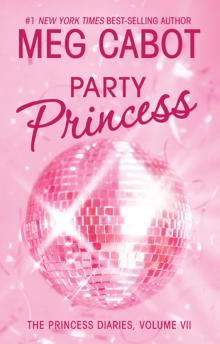 Party Princess
Party Princess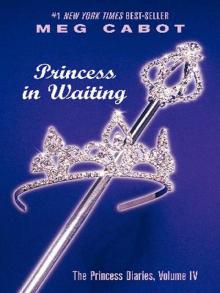 Princess in Waiting
Princess in Waiting Being Nikki
Being Nikki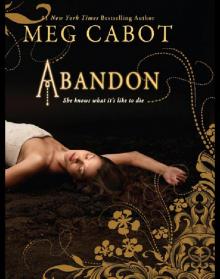 Abandon
Abandon Princess on the Brink
Princess on the Brink Darkest Hour
Darkest Hour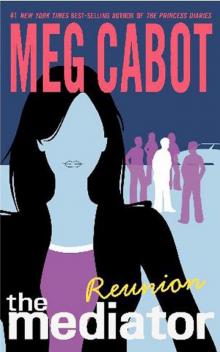 Reunion
Reunion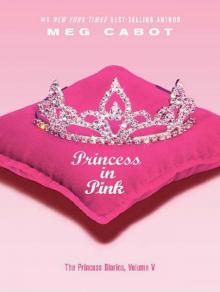 Princess in Pink
Princess in Pink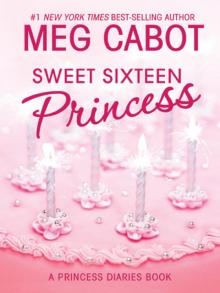 Sweet Sixteen Princess
Sweet Sixteen Princess The Princess Diaries
The Princess Diaries Airhead
Airhead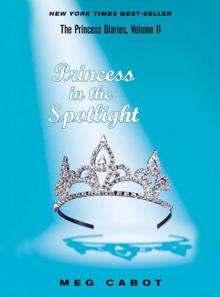 Princess in the Spotlight
Princess in the Spotlight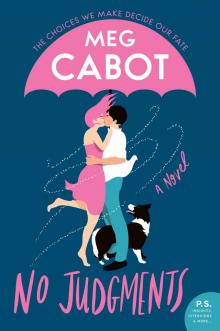 No Judgments
No Judgments All-American Girl
All-American Girl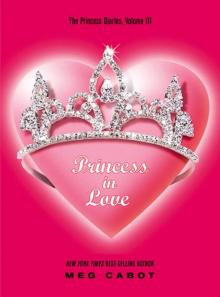 Princess in Love
Princess in Love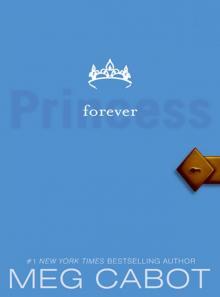 Forever Princess
Forever Princess Haunted
Haunted Shadowland
Shadowland Twilight
Twilight Princess Mia
Princess Mia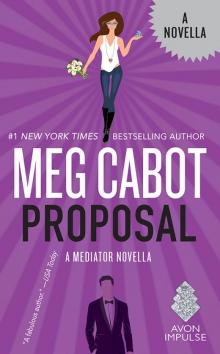 Proposal
Proposal Remembrance
Remembrance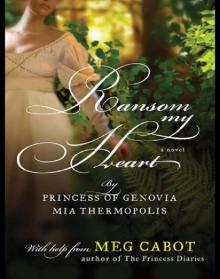 Ransom My Heart
Ransom My Heart Underworld
Underworld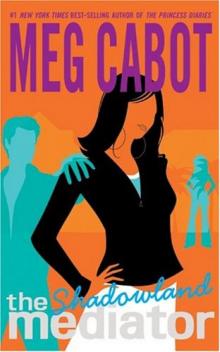 Shadowland tm-1
Shadowland tm-1 Size 14 Is Not Fat Either
Size 14 Is Not Fat Either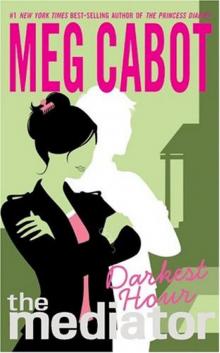 Darkest Hour tm-4
Darkest Hour tm-4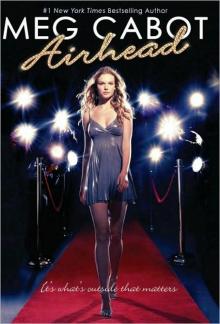 Airhead a-1
Airhead a-1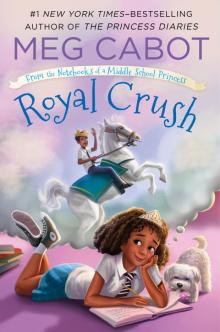 Royal Crush
Royal Crush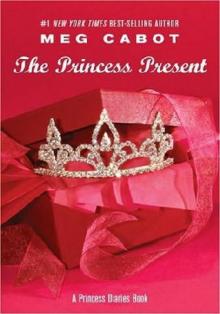 The Princess Present (princess diaries)
The Princess Present (princess diaries)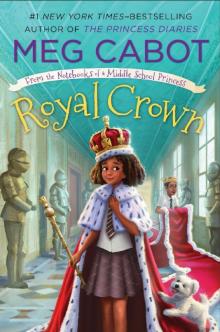 Royal Crown
Royal Crown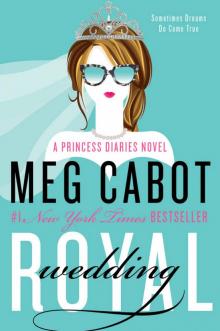 Royal Wedding: A Princess Diaries Novel (The Princess Diaries Book 11)
Royal Wedding: A Princess Diaries Novel (The Princess Diaries Book 11)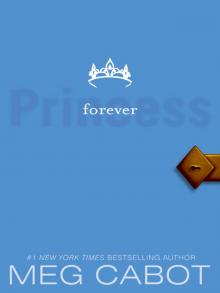 Princess Diaries, Vol. X: Forever Princess
Princess Diaries, Vol. X: Forever Princess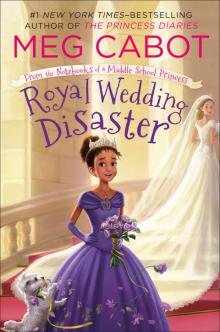 Royal Wedding Disaster
Royal Wedding Disaster Allie Finkle's Rules for Girls: Glitter Girls and the Great Fake Out
Allie Finkle's Rules for Girls: Glitter Girls and the Great Fake Out Size 12 Is Not Fat hwm-1
Size 12 Is Not Fat hwm-1 Princess on the Brink pd-8
Princess on the Brink pd-8 The New Girl
The New Girl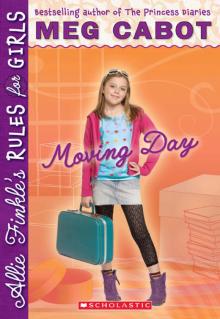 Allie Finkle's Rules for Girls: Moving Day
Allie Finkle's Rules for Girls: Moving Day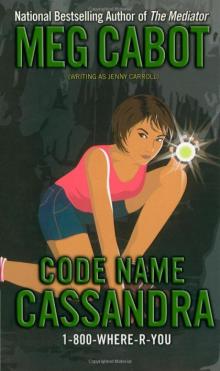 Code Name Cassandra
Code Name Cassandra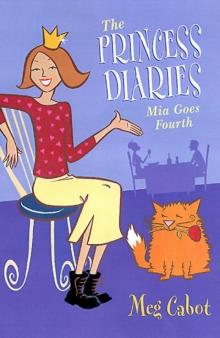 Mia Goes Fourth pd-4
Mia Goes Fourth pd-4 Sanctuary 1-4
Sanctuary 1-4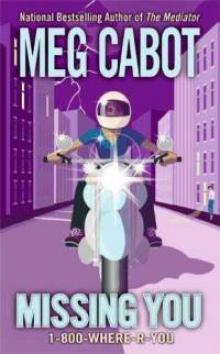 Missing You 1-5
Missing You 1-5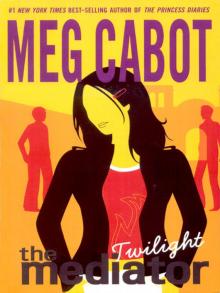 The Mediator 6: Twilight
The Mediator 6: Twilight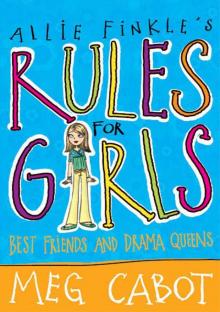 Allie Finkle's Rules for Girls: Best Friends and Drama Queens
Allie Finkle's Rules for Girls: Best Friends and Drama Queens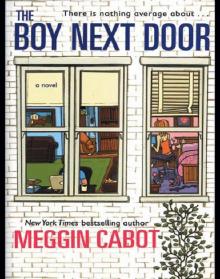 The Boy Next Door
The Boy Next Door Every Boy's Got One
Every Boy's Got One Princess Mia pd-9
Princess Mia pd-9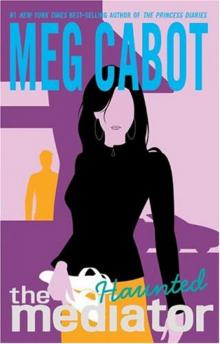 Haunted tm-5
Haunted tm-5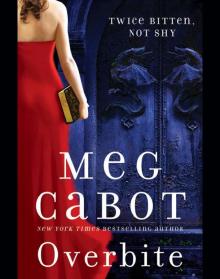 Overbite
Overbite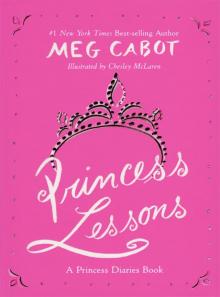 Princess Lessons
Princess Lessons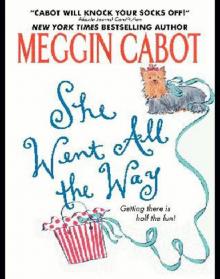 She Went All the Way
She Went All the Way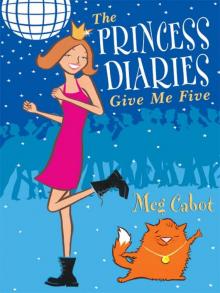 Give Me Five pd-5
Give Me Five pd-5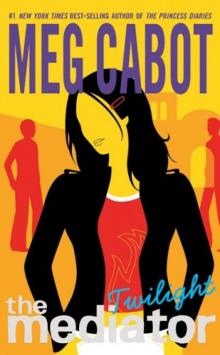 Twilight tm-6
Twilight tm-6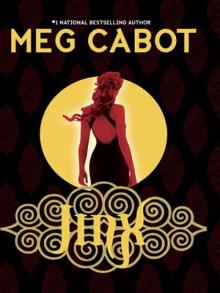 Jinx
Jinx Runaway (Airhead #3)
Runaway (Airhead #3)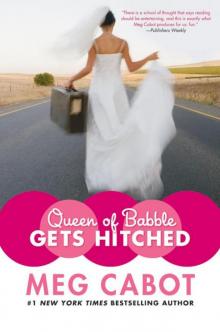 Queen of Babble Gets Hitched qob-3
Queen of Babble Gets Hitched qob-3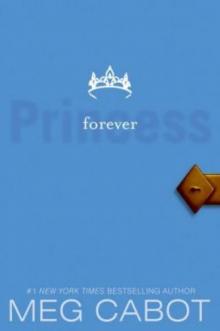 Forever Princess pd-10
Forever Princess pd-10 Queen of Babble
Queen of Babble Boy Meets Girl b-3
Boy Meets Girl b-3 Pants on Fire
Pants on Fire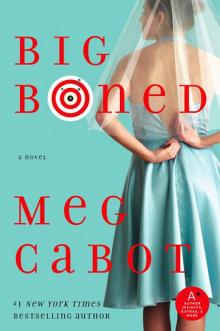 Big Boned ху-3
Big Boned ху-3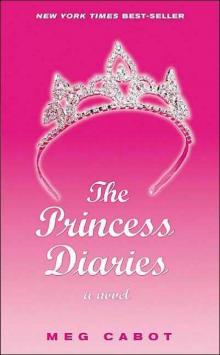 Princess' Diaries pd-1
Princess' Diaries pd-1 Size 14 Is Not Fat Either hwm-2
Size 14 Is Not Fat Either hwm-2 Awaken a-3
Awaken a-3 Queen Of Babble: In The Big City qob-2
Queen Of Babble: In The Big City qob-2 Nicola and the Viscount
Nicola and the Viscount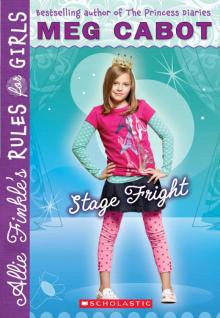 Allie Finkle's Rules for Girls: Stage Fright
Allie Finkle's Rules for Girls: Stage Fright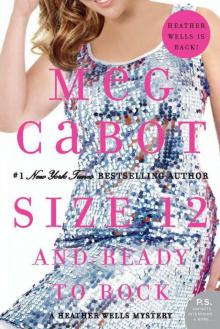 Size 12 and Ready to Rock
Size 12 and Ready to Rock Perfect Princess
Perfect Princess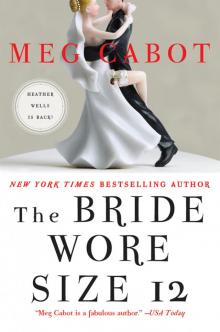 The Bride Wore Size 12
The Bride Wore Size 12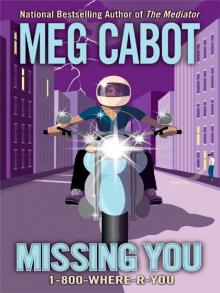 1-800-Where-R-You: Missing You
1-800-Where-R-You: Missing You How to Be Popular
How to Be Popular Queen of Babble Bundle with Bonus Material
Queen of Babble Bundle with Bonus Material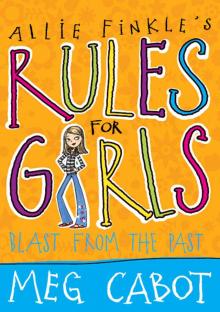 Allie Finkle's Rules for Girls: Blast from the Past
Allie Finkle's Rules for Girls: Blast from the Past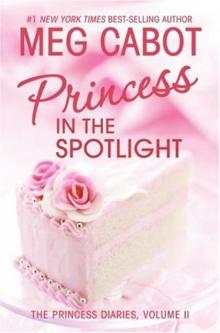 Princess in the Spotlight pd-2
Princess in the Spotlight pd-2 Ready or Not
Ready or Not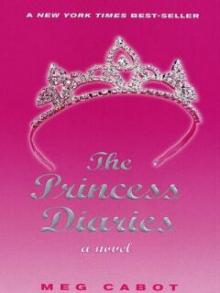 The Princess Diaries I
The Princess Diaries I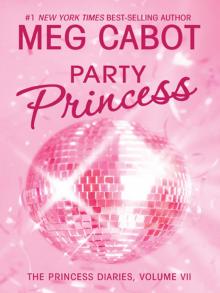 Party Princess pd-7
Party Princess pd-7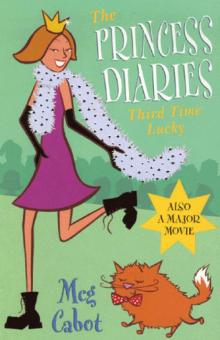 Third Time Lucky pd-3
Third Time Lucky pd-3 Stage Fright
Stage Fright From the Notebooks of a Middle School Princess
From the Notebooks of a Middle School Princess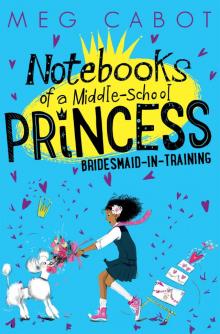 Notebooks of a Middle-School Princess Bridesmaid-in-Training
Notebooks of a Middle-School Princess Bridesmaid-in-Training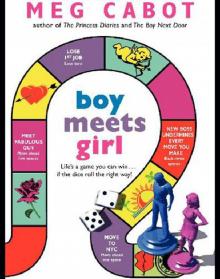 Boy Meets Girl
Boy Meets Girl Missing You
Missing You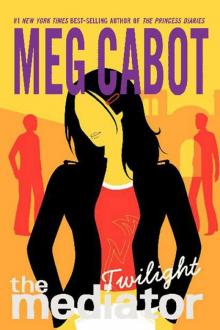 The Twilight
The Twilight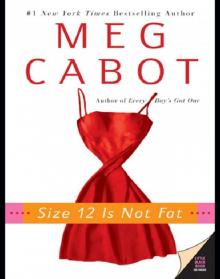 Size 12 Is Not Fat
Size 12 Is Not Fat Code Name Cassandra 1-2
Code Name Cassandra 1-2 Valentine Princess
Valentine Princess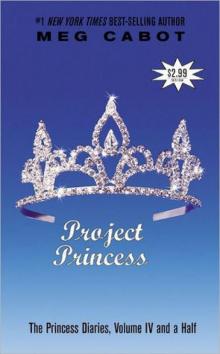 Project Princess
Project Princess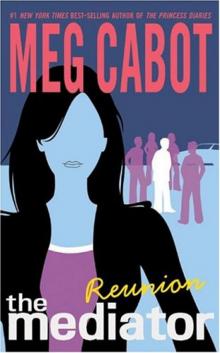 Reunion tm-3
Reunion tm-3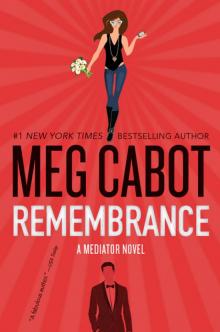 Remembrance: A Mediator Novel
Remembrance: A Mediator Novel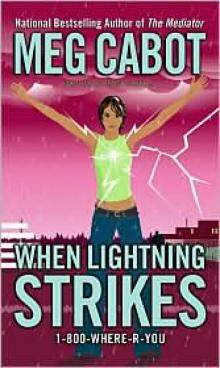 When Lightning Strikes 1-1
When Lightning Strikes 1-1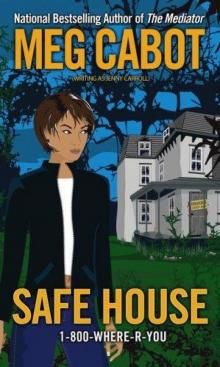 Safe House 1-3
Safe House 1-3 Teen Idol
Teen Idol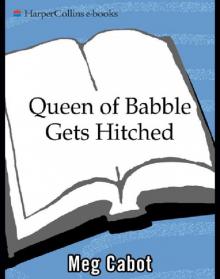 Queen of Babble Gets Hitched
Queen of Babble Gets Hitched Glitter Girls and the Great Fake Out
Glitter Girls and the Great Fake Out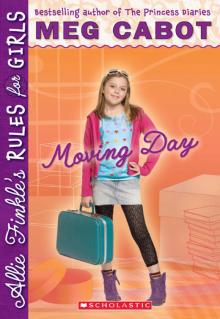 Moving Day
Moving Day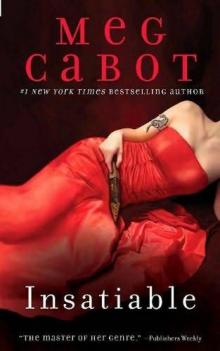 Insatiable
Insatiable All American Girl
All American Girl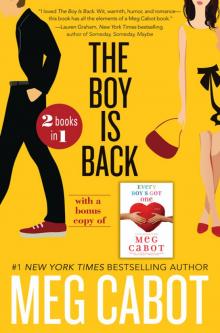 The Boy Is Back + Every Boy's Got One Bundle
The Boy Is Back + Every Boy's Got One Bundle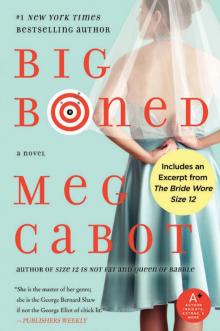 Big Boned
Big Boned Awaken
Awaken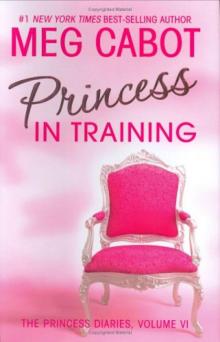 Princess in Training pd-6
Princess in Training pd-6